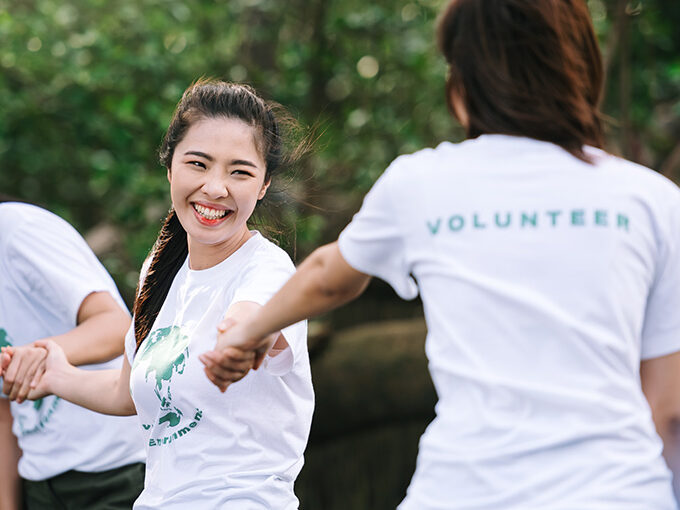How many times have we heard: “Charities do not pay tax. Everyone knows that.” Of course, nothing could be further from the truth.
Almost without exception, every charity in the UK suffers the cost of irrecoverable VAT. Yet, despite this, many charities who could (or should) be registered for VAT are not, thus forgoing any opportunity they have to recover some of the VAT they incur.
The fear appears to be that VAT registration is an administrative burden, a financial cost and yet another regulatory body inspecting the charity. Our experience, however, is that VAT registration is invariably little more than a financial opportunity to cut costs.
It is a common myth that taxable turnover has to exceed the compulsory registration limit, currently £90,000 per annum (£85,000 before 1 April 2024), in order for a charity to register for VAT. This is not the case. A charity can voluntarily register for VAT when it generates any level of taxable income, no matter how small. Another great myth is that a charity can only VAT register from the date an application is made to HM Revenue & Customs (HMRC). Again, this is not the case. A charity can retrospectively register for VAT as far back as its taxable income exceeds the compulsory registration limit applicable at the relevant time. Similarly, a charity can retrospectively register for VAT voluntarily for a period of four years where its taxable income falls below the compulsory threshold.
Clearly, this will only be advantageous where there is a financial benefit by way of a windfall. A good example of how this could arise is where a charity generates zero-rate income. Zero-rate activities include the sale of donated goods, at say a shop, or at a fundraising auction. So, for example, a hospice, which is predominantly concerned with exempt and non-business activity has a couple of charity shops selling donated goods. It also holds an annual fundraising ball where donated goods are sold at an auction. The sale of these donated goods is also zero-rated. In this scenario, the hospice can either retrospectively register as far back as it zero-rate income exceeds the compulsory threshold or voluntarily for a period of three years. VAT can be recovered in full on all shop related costs and partially on all overheads, including the costs of staging the fundraising event. Although VAT will need to be declared on any standard-rate supplies, these are likely to be minimal.
Another example of where retrospective registration is common, is membership organisations. Where the principal or sole benefit of membership is zero-rate publications, the subscription income is zero-rate. A retrospective VAT registration can enable a sizeable windfall. This is particularly true where VAT is incurred on fees from membership recruitment agencies.
VAT for Charities – Opportunities
In order to maximise the windfall opportunity it is key that the charity recovers as much VAT incurred on general overheads as possible. The method to determine the rate of VAT recovery on these costs, termed the business/non-business apportionment, is a matter to be negotiated with HMRC as there is no statutory way by which the calculation is to be made. As this is largely a subjective issue, it is an opportunity to ensure the charity recovers a fair level of overhead VAT that reflects the effort made to generate and administer its business income and activities.
If the charity generates large income from legacies, donations or grants used to fund labour intensive non-business charitable activities, it is likely that a method based upon income will not provide for a reasonable rate of recovery. This is because the high levels of these incomes is usually disproportionate to the effort used to generate them. If this is the case, using a method based upon expenditure, salary exclusive expenditure or staff numbers will side step this potential problem.
Conversely, HMRC often suggest that where an expenditure method is used, the inclusion of goods for resale or high value external providers (eg membership recruitment agencies), can equally distort the level of recovery in the charity’s favour. Clearly, any such suggestion should be resisted.
An additional way to increase the recovery of VAT on overheads can be to form a VAT group registration with one or more trading subsidiary companies. This can only be done where the charity itself is body corporate. The advantage of this is to enable the inclusion of the subsidiary’s business income to lever up the overall business activities of the group. A further advantage is that inter-company transactions can be overlooked for VAT purposes and effectively treated as an internal transfer. This overcomes the common mistake of overlooking the VAT position of charges made to the subsidiary for staff time and other services provided by the charity.
A retrospective VAT registration also enables the charity to recover VAT at the partial rate on assets purchased which are on-hand on the effective date of registration. This is particularly beneficial where building or IT costs have been incurred or other large assets purchased. VAT on services incurred on the six months immediately prior to registration can also be partially recovered.
Providing the charity is in a net VAT repayment position eg year-on-year, it can recover more VAT than it is required to declare, and it can retrospectively register for VAT. Care needs to be taken however that VAT is not deemed to be charged on assets where input tax has previously been recovered on their purchase.
We would strongly encourage all charities who are not VAT registered to request a review of their VAT status from their respective advisors. It may just be that you are sitting on a material windfall, courtesy of the HMRC.
If you have any queries based on the points raised here, or would like to discuss your VAT position, please get in touch with your usual Saffery contact.
Useful Resources:
- VAT Refund Scheme for Charities – HM Revenue & Customs
- Tax Incentives for Giving to Charity – Saffery
- Charities & Not for Profits – Saffery
Contact Us
Director, Manchester
Key experience










